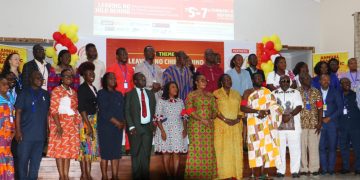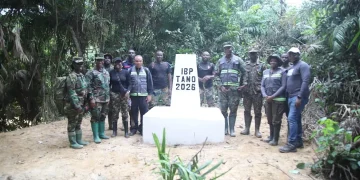Assembly members, market women, and concerned residents of Asante Akim Central have challenged a recent environmental research report that claims alarming levels of mercury, arsenic, and lead contamination in Konongo Zongo.
At a press conference on Monday, the group described the report—titled “Mercury and Other Heavy Metals Impact Assessment”—as inaccurate and damaging, alleging that it misrepresented the environmental conditions in the community and sparked unnecessary panic.
The report, which assessed contamination across six regions in Ghana, including the Ashanti Region, linked the presence of heavy metals in soil, water, crops, and fish to human activities.
However, community leaders insist that several conclusions made about Konongo Zongo are unfounded.
Speaking on behalf of the group, representatives argued that the findings relating specifically to Konongo Zongo lacked factual basis.
” There’s no crops or fish farms in Zongo as stated. No crops are cultivated in Konongo Zongo and no fish farms operate in the area, making claims of contaminated produce or fish scientifically impossible”.
Questionable sampling methods, The group further said the sampling methodology used by the researchers, alleging that soil samples were not sourced directly from the ground.
They emphasized that Konongo Zongo has no artisanal or small-scale mining operations, countering suggestions that such activities may have conributed to contamination.
The spokespersons noted that even where galamsey occurs, lead is not used in extraction processes, though mercury and cyanide remain major concerns in mining communities.
Economic Impact on Residents
The group expressed worry over the socioeconomic consequences of the report’s publication. Market women, they said, have experienced reduced patronage amid fears that local produce may be contaminated.
“The release of this report has caused undue panic and harm to the local community,” the statement noted, urging authorities to be mindful of the real-life implications of environmental publications.
Call for Revision and Improved Research Standards
The group called on the Environmental Protection Agency (EPA) and the nonprofit organization Pure Earth to review and correct the report, arguing that its inaccuracies unfairly tarnish Konongo Zongo’s reputation.
They further appealed for more rigorous and transparent research standards in future environmental assessments.
“By working together, we can address environmental concerns effectively while protecting the livelihoods of our community members,” the statement said.
Source :www.kumasimail.com

































































